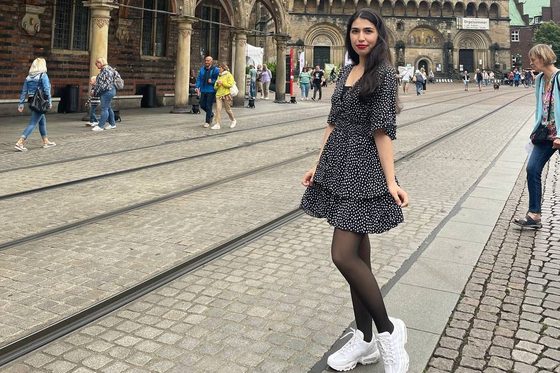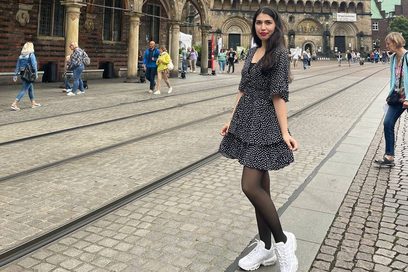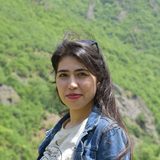Diese Seite ist erreichbar unter:
https://abi.de/unterstuetzung/start-in-germany/start-in-germany-nursing-professional
Wir möchten unser Online-Angebot gut auf deine Bedürfnisse anpassen. Zu diesem Zweck setzen wir sogenannte Cookies ein. Entscheide bitte, welche Cookies du zulassen möchtest. Die Arten von Cookies werden nachfolgend beschrieben. Bitte beachte: Je nachdem, welche Cookies du zulässt oder nicht, stehen dir anschließend womöglich nicht mehr alle Funktionen der Website zur Verfügung. Mehr Informationen dazu findest du in unseren Datenschutzhinweisen
Einige unserer Cookies sind technisch bedingt – ohne sie würde unsere Website nicht richtig funktionieren. Sie sind unter anderem erforderlich für die portalweite Suchfunktion, das Anzeigen von Videoinhalten und deine Datenschutzeinstellungen.
Diese Cookies ermöglichen es uns, anonymisierte Daten zu deinem Besuch für Statistiken und die Analyse unserer Website zu sammeln. Wenn du diese Cookies zulässt, hilfst du uns dabei, die Website für die zukünftige Nutzung zu optimieren.
Fatemeh Raeika Vahedi moved from Iran to Hamburg by herself. She now works as a qualified nurse and has completed her year of recognition.


Diesen Artikel auf Deutsch lesen
Fatemeh, who is 28 years old, said farewell to her hometown of Rascht and moved to northern Germany, where she now works for the Asklepios Clinics group. This company specifically recruits skilled workers from countries which train more nurses than they need – including Turkey and Iran.
“I mainly wanted to leave Iran and find a job in a new country for financial reasons”, explains Fatemeh Raeika Vahedi. Although working, she had to live with her family as she couldn’t afford her own apartment. Her father and brother currently live in Norway, but moving there was out of the question. “It’s too cold and dark for me there”, she says with a laugh. Hamburg seemed to be a good alternative. “Besides, the weather here is similar to my hometown”, she says.

My team is international, and several of my colleagues come from different countries. I’ve learned a lot about other cultures.
Fatemeh Raeika Vahedi (28), nurse
She learned about the opportunities to work as a nurse in Germany and found a placement agency which places international skilled workers with businesses and organisations in Germany. That included the Asklepios Clinics, which have been seeking staff from abroad for several years.
Fatemeh has a bachelor’s degree in nursing from Gilan University in Rascht, and before arriving in Germany, starting in 2021, she had worked in various clinical settings, including in the field of oncology – treating people suffering from cancer. At the same time, she learned German at a private language school, as getting a job in Germany in her field requires B2 language proficiency in German.
She arranged for her certificates for her application to be translated and certified. The placement agency then organised an interview for her with Asklepios by video link. “It was a bit nerve-wracking”, she recalls: her internet connection was interrupted several times. But everything worked out well in the end and they said yes – and she got her work visa.
In December 2023, she arrived in Hamburg and began working in the ENT ward at the Asklepios Clinic North. She then completed her year for the recognition of her qualifications, in which she attended in-house language classes to learn the vocabulary for her role as well as everyday German for communicating with the patients. She has now been employed as an officially qualified nurse since December 2024.
The language barrier remains one of her biggest challenges. “It’s very important for me to understand everything very well, as the patients’ health is at stake.” Her experiences have been positive, though. “Most people are very kind and understanding. They speak more slowly and praise me for my German.”
Fatemeh also feels at home on her ward. “My team is international, and several of my colleagues come from different countries. I’ve learned a lot about other cultures”, she says. Everyone contributes their own experiences to the clinic, which is enriching. And sometimes their native language skills also help out at work. “If patients can’t speak German, we have to translate for the doctors.”
Because she arrived in Germany without her family, there have been times when she has felt lonely. “It’s probably easier to move abroad with your family or partner”, she says. “There have certainly been times when I could have used a shoulder to cry on.”
She had to do everything on her own: from finding a home to dealing with the public authorities, which her employer supported her with. “It was exhausting, but I’m proud of what I’ve achieved.”
She is currently planning her future in Germany. She wants to stay working in her ward and to continue to improve her German. “Maybe getting German citizenship will also be possible in a few years’ time”, she says. Her employer also wants to retain its international skilled employees. The clinic supports the workers’ long-term integration by offering further training and individual shift planning, and also helps them with bringing their family members over to Germany.
Stand: 05.05.2025
Vielen Dank für dein Feedback zu dieser Seite! Deine Kritik oder dein Lob zu abi.de kannst du uns gerne auch ergänzend über „Kontakt“ mitteilen. Deine abi» Redaktion
Diese Seite ist erreichbar unter:
https://abi.de/unterstuetzung/start-in-germany/start-in-germany-nursing-professional